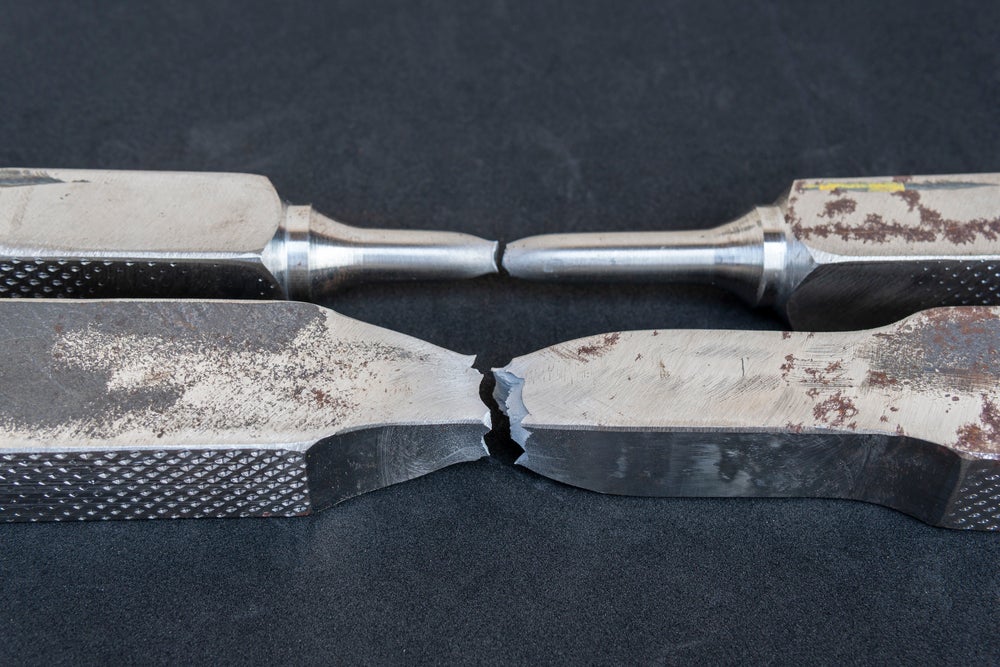![]() This learning track covers the comprehensive study of failure analysis and prevention in engineering. It begins with an exploration of the conditions that constitute a component failure, such as inoperability, compromised safety, and reliability. The track delves into the four broad categories of mechanical component failures and their fundamental causes, including design, material, manufacturing, and service conditions. For instance, a well-designed automobile can fail if the incorrect lubricant is used. The track further explores the importance of systematic investigation to identify the root causes of failures. It also highlights the role of extra stages in failures, the impact of imperfections in base metals, and the importance of proper manufacturing procedures. For instance, the track provides a case study on the failure of a connecting rod due to metallurgical heterogeneity and how proper heat treatment and control of microstructure can prevent such failures. The track concludes with a detailed explanation of the application of industrial engineering tools like the Pareto diagram, Fishbone diagram, Failure Mode and Effect Analysis (FMEA), and Fault Tree Analysis (FTA) for systematic failure analysis.
This learning track covers the comprehensive study of failure analysis and prevention in engineering. It begins with an exploration of the conditions that constitute a component failure, such as inoperability, compromised safety, and reliability. The track delves into the four broad categories of mechanical component failures and their fundamental causes, including design, material, manufacturing, and service conditions. For instance, a well-designed automobile can fail if the incorrect lubricant is used. The track further explores the importance of systematic investigation to identify the root causes of failures. It also highlights the role of extra stages in failures, the impact of imperfections in base metals, and the importance of proper manufacturing procedures. For instance, the track provides a case study on the failure of a connecting rod due to metallurgical heterogeneity and how proper heat treatment and control of microstructure can prevent such failures. The track concludes with a detailed explanation of the application of industrial engineering tools like the Pareto diagram, Fishbone diagram, Failure Mode and Effect Analysis (FMEA), and Fault Tree Analysis (FTA) for systematic failure analysis.

Innovation Course
Introduction to Failure Analysis
This course covers the critical subject of failure analysis and prevention in engineering, with a particular focus on mechanical components. It delves into the conditions that constitute a component failure, such as inoperability, compromised safety, and reliabili...Read more

Innovation Course
Fundamental Sources of Failure: Manufacturing
This course covers the fundamental sources of failure in mechanical components and manufacturing processes, and how to prevent them. It delves into the role of extra stages in failures, the impact of imperfections in base metals, and the importance of ...Read more

Innovation Course
Industrial Engineering Tool for Failure Analysis
This course covers the comprehensive understanding of failure analysis and prevention in various systems. It starts with the exploration of fundamental sources of failure such as poor assembly, service conditions, and maintenance. For instance, it ...Read more

Innovation Course
General Procedure of Failure Analysis: Introduction
This course covers the comprehensive understanding of product reliability and failure analysis. It delves into the importance of reliability in product design and how it is closely related to failure analysis. For instance, a product with a simpl...Read more

Innovation Course
General Procedure of Failure Analysis: NDT, DT and Macroscopy
This course covers the comprehensive study of failure analysis and prevention in engineering components. It begins with an exploration of the importance of failure analysis, the general practices and procedures involved, and the role of ...Read more

Innovation Course
General Procedure of Failure Analysis: Macroscopy and Metallurgy
This course covers the comprehensive procedure of failure analysis and prevention, focusing on the macroscopic and microscopic examination of fracture surfaces. It delves into the importance of identifying the location and direction ...Read more

Innovation Course
Determination of Fracture and Application of Fracture Mechanics
This course covers the comprehensive study of fracture analysis and prevention. It provides an in-depth understanding of different fracture types such as dimple fracture, cleavage fracture, and intergranular fracture, and how these f...Read more

Innovation Course
Failure Analysis of Welds
This course covers the extensive process of failure analysis and prevention, focusing on various aspects such as the steps involved in failure analysis, the method of reporting, analysis of welded joints, and the comprehensive process of failure analysis in weld joints. ...Read more


There is no badge available for this learning track.
Please visit Guided Learning Paths to browse through our selection of other learning tracks.